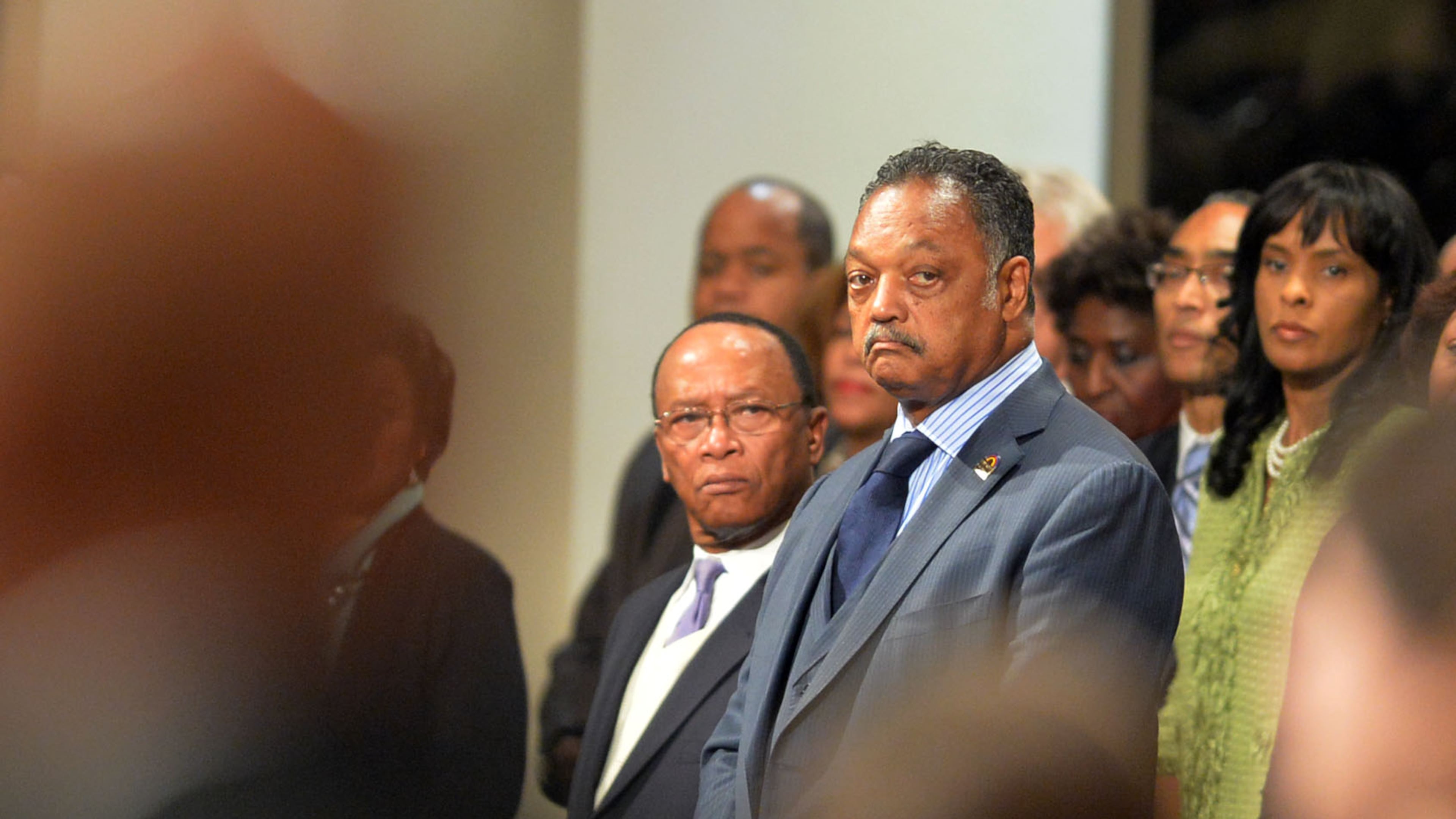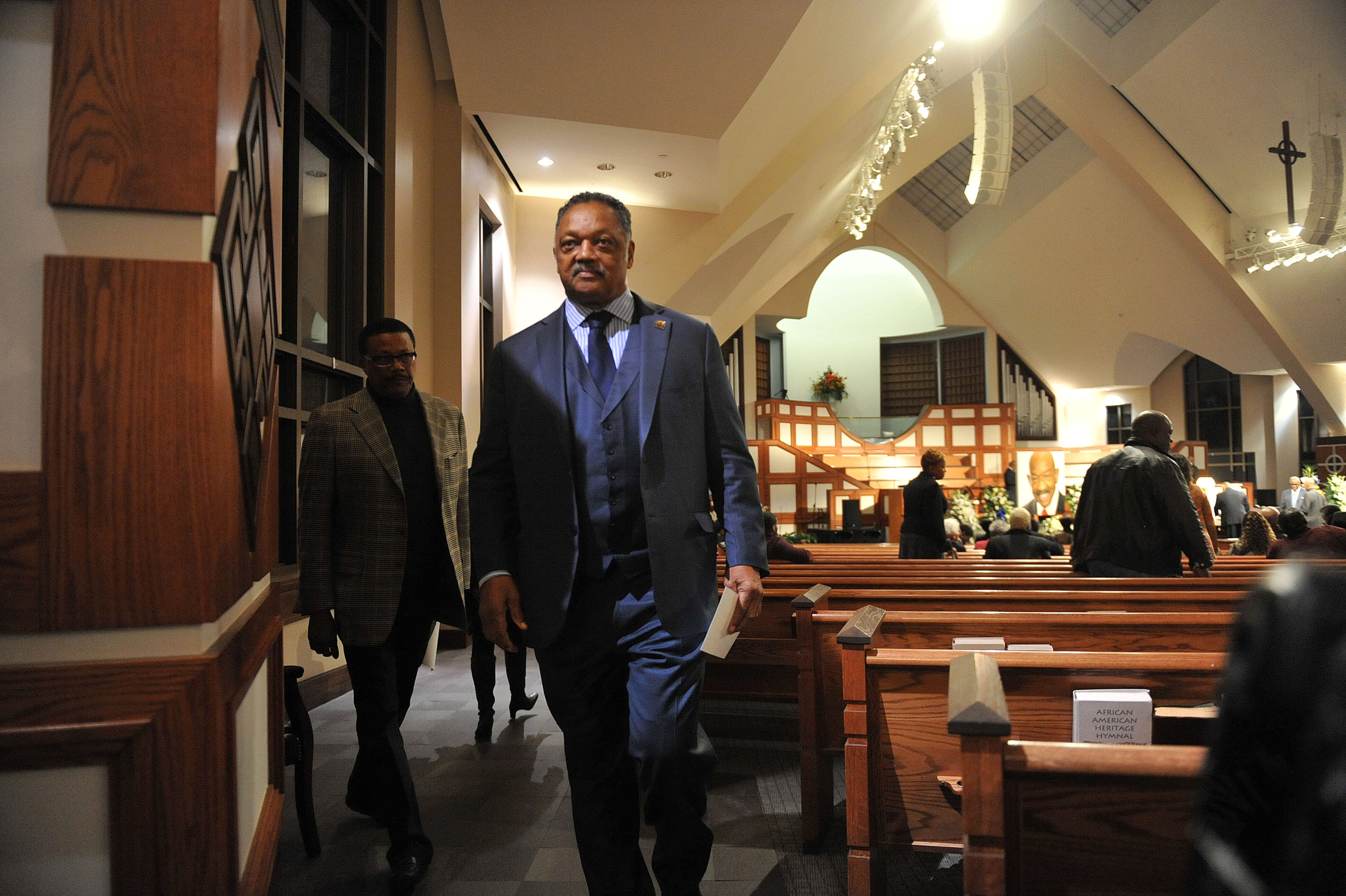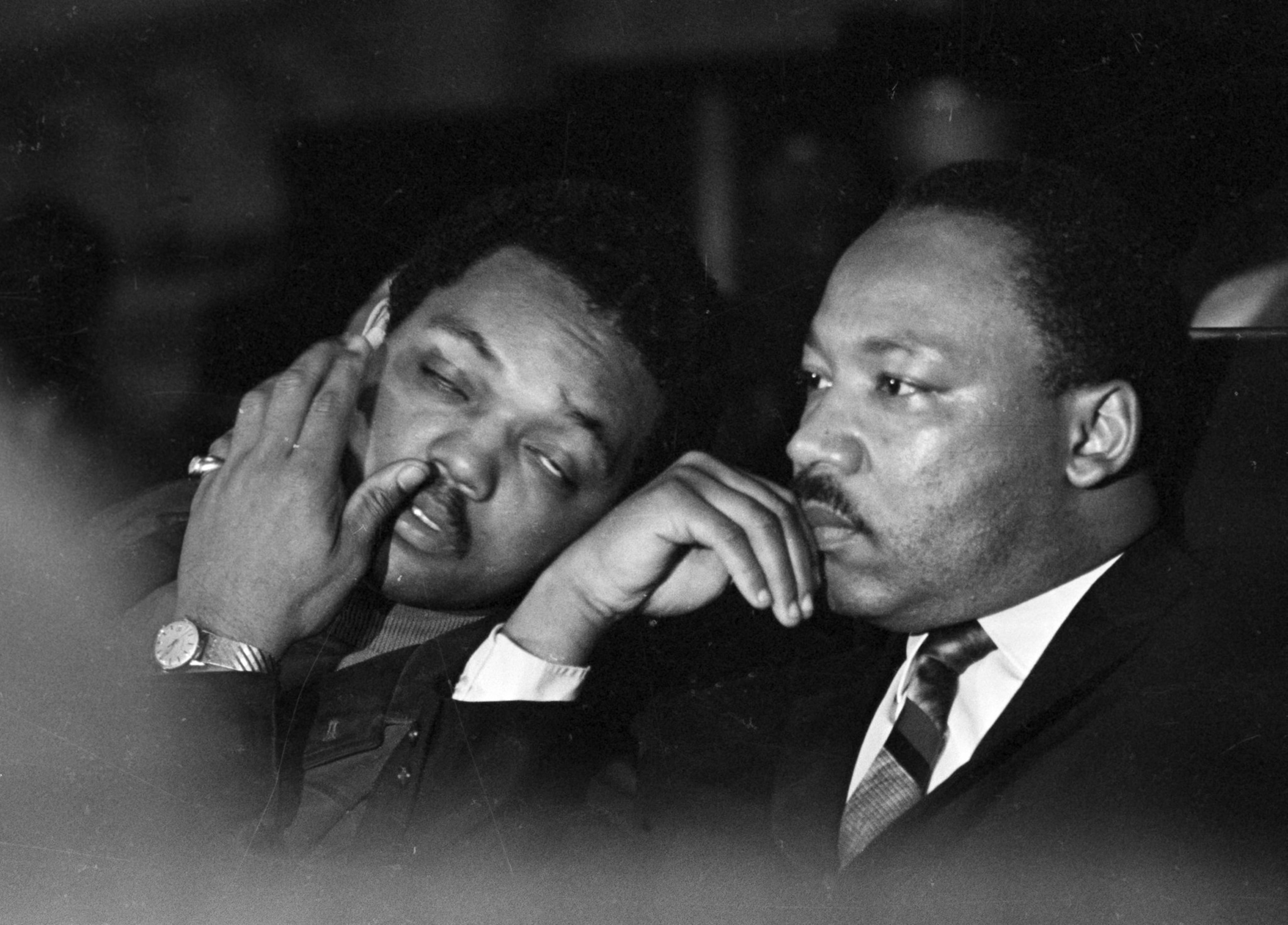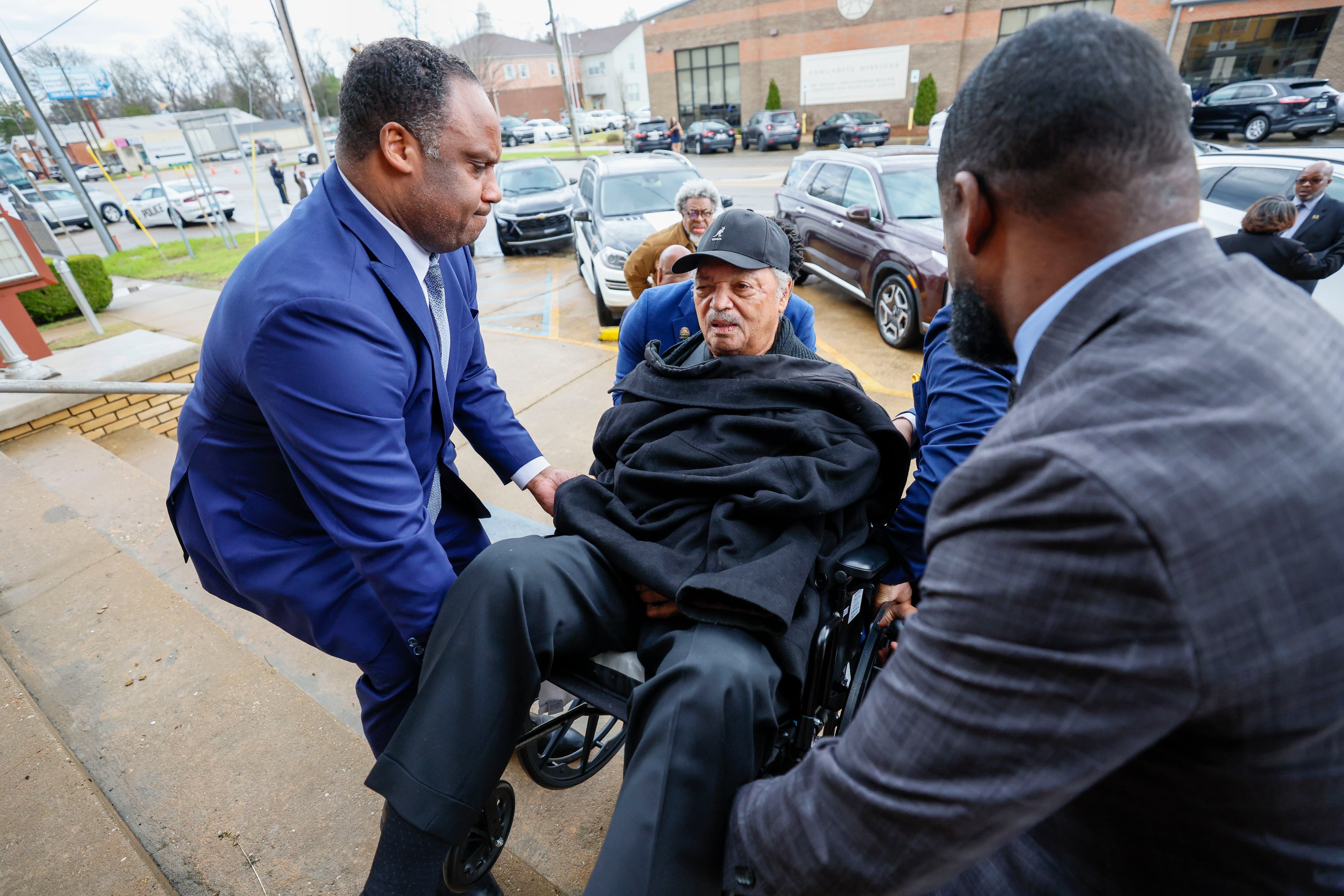Jesse Jackson hospitalized as he battles longstanding neurological illness

Civil rights leader and former presidential candidate the Rev. Jesse Jackson has been hospitalized in Chicago, his organization said Wednesday.
Jackson, 84, a protege of the Rev. Martin Luther King Jr. with deep ties to Atlanta’s civil rights community, is under observation for progressive supranuclear palsy, or PSP, the Rainbow PUSH Coalition said.
In its statement, the organization Jackson founded said he has been managing the neurodegenerative condition for more than a decade.
“He was originally diagnosed with Parkinson’s disease,” the statement read. “However, last April, his PSP condition was confirmed. The family appreciates all prayers at this time.”

Progressive supranuclear palsy is “a rare neurological disorder that affects body movements, walking and balance, and eye movements,” according to the U.S. National Institute of Neurological Disorders and Stroke.
Jackson’s health first drew wide attention in 2017 when he revealed his Parkinson’s diagnosis, a progressive illness marked by tremors, stiffness and loss of movement.
“My family and I began to notice changes about three years ago,” Jackson said at the time. “After a battery of tests, my physicians identified the issue as Parkinson’s disease, a disease that bested my father. Recognition of the effects of this disease on me has been painful.”
A towering figure of the civil rights era, Jackson emerged on the national stage in the 1960s and went on to spend more than six decades pressing for racial equality, economic justice and expanded voting rights.
He kept an office in Atlanta for years and remained a regular presence in the city until his health declined.

Jackson founded Operation PUSH in 1971, building it into a national platform aimed at improving economic opportunities for Black Americans. The group grew out of Operation Breadbasket, an initiative of the Southern Christian Leadership Conference created under King.
In 1984, the year he entered the Democratic presidential race, Jackson also launched the National Rainbow Coalition, an effort to broaden political representation and expand equal rights. The organization later merged with Operation PUSH to form the Rainbow PUSH Coalition.
Jackson mounted two consequential bids for the White House during the 1980s.
Initially dismissed as a long-shot candidate in 1984, he surprised party leaders by winning five primaries and caucuses, including contests in Louisiana, the District of Columbia and South Carolina.
Buoyed by chants of “Run, Jesse, Run!” and later “Win, Jesse, Win!,” he finished third in the 1984 Democratic contest behind Walter Mondale and second in 1988 to Michael Dukakis. Neither nominee went on to win the presidency.

In her book “A Dream Deferred: Jesse Jackson and the Fight for Black Political Power,” CNN’s Abby Phillip writes that Jackson’s campaigns fused moral authority with political ambition, uniting working-class Americans, college students and Black voters into a coalition that reshaped the Democratic Party — a template echoed in the rise of figures from Barack Obama to Kamala Harris to Alexandria Ocasio-Cortez.
Phillip said Jackson’s story remains essential to understanding modern American politics.
“Jackson didn’t just inspire Black Americans to believe a Black man could be president,” Phillip said. “He literally changed the rules of the Democratic Party, making it possible for an outsider, nonestablishment candidate to win a primary — even after losing the big states.”
In a conversation with Phillip, former Atlanta Mayor Andrew Young, a civil rights contemporary of Jackson’s, said he “stood in the midst of history and made some too.”
“This is a story that needs to be told,” Young said.

Beyond his Parkinson’s diagnosis, Jackson has faced a series of health challenges in recent years.
In 2021, he underwent gallbladder surgery and was later hospitalized with COVID-19 alongside his wife.
Months later, he was briefly admitted to a hospital after a fall during a meeting at Howard University in Washington.
Citing his health, he stepped down from his role as president of the Rainbow PUSH Coalition in July 2023.
